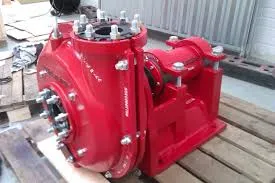Malayalam
- Afrikaans
- Albanian
- Amharic
- Arabic
- Armenian
- Azerbaijani
- Basque
- Belarusian
- Bengali
- Bosnian
- Bulgarian
- Catalan
- Cebuano
- Corsican
- Croatian
- Czech
- Danish
- Dutch
- English
- Esperanto
- Estonian
- Finnish
- French
- Frisian
- Galician
- Georgian
- German
- Greek
- Gujarati
- Haitian Creole
- hausa
- hawaiian
- Hebrew
- Hindi
- Miao
- Hungarian
- Icelandic
- igbo
- Indonesian
- irish
- Italian
- Japanese
- Javanese
- Kannada
- kazakh
- Khmer
- Rwandese
- Korean
- Kurdish
- Kyrgyz
- Lao
- Latin
- Latvian
- Lithuanian
- Luxembourgish
- Macedonian
- Malgashi
- Malay
- Malayalam
- Maltese
- Maori
- Marathi
- Mongolian
- Myanmar
- Nepali
- Norwegian
- Norwegian
- Occitan
- Pashto
- Persian
- Polish
- Portuguese
- Punjabi
- Romanian
- Russian
- Samoan
- Scottish Gaelic
- Serbian
- Sesotho
- Shona
- Sindhi
- Sinhala
- Slovak
- Slovenian
- Somali
- Spanish
- Sundanese
- Swahili
- Swedish
- Tagalog
- Tajik
- Tamil
- Tatar
- Telugu
- Thai
- Turkish
- Turkmen
- Ukrainian
- Urdu
- Uighur
- Uzbek
- Vietnamese
- Welsh
- Bantu
- Yiddish
- Yoruba
- Zulu
Telephone: +86 13120555503
Email: frank@cypump.com
ഒക്ട് . 17, 2024 05:22 Back to list
septic ejector pump
Understanding Septic Ejector Pumps Function and Importance
Septic systems are essential for homes and properties not connected to municipal sewage systems. One of the critical components of these systems is the septic ejector pump. This device plays a vital role in ensuring that wastewater is effectively removed from the septic tank and transported to the appropriate treatment facility. Understanding how septic ejector pumps work and their importance can help homeowners maintain their septic systems more effectively.
What is a Septic Ejector Pump?
A septic ejector pump is a type of sewage pump designed to move wastewater from a septic tank to a drain field or another location for treatment. Unlike standard sump pumps that handle stormwater or groundwater, ejector pumps specifically deal with wastewater from toilets, sinks, and other household fixtures. They are typically installed in a pit or basin within the septic system, known as a dosing chamber.
How Does It Work?
When wastewater enters the septic tank, heavier solids settle to the bottom, forming sludge, while lighter materials, like grease, float to the surface, creating scum. As the level of liquid rises in the septic tank, it eventually triggers the ejector pump to activate. The pump uses a mechanical motor to create pressure, forcing the wastewater out of the tank and through a discharge pipe to the drain field or sewer line.
Ejector pumps often come with a float switch that automatically turns them on and off based on the water level in the basin. This automatic operation ensures that the pump only runs when necessary, conserving energy and improving efficiency.
Importance of Ejector Pumps in Septic Systems
1. Wastewater Management Ejector pumps effectively manage and transport wastewater, preventing backups and overflows that can lead to environmental contamination and potential health hazards.
2. Preventing Odors A properly functioning ejector pump helps keep odors at bay by ensuring that waste is removed promptly and efficiently. This is particularly important in residential areas where septic systems are common.
septic ejector pump

3. Commercial Applications Many commercial properties utilize ejector pumps for their sewage systems, as they handle larger volumes of wastewater. This ensures that businesses can operate without interruption due to sewer backups or blockages.
4. System Longevity By removing wastewater efficiently, ejector pumps can help prolong the life of the septic system. Regular maintenance of the pump can prevent costly repairs or replacements down the line.
Maintenance Tips
To keep a septic ejector pump functioning effectively, regular maintenance is essential. Here are some tips
- Regular Inspections Schedule periodic inspections by a qualified professional to check for any signs of wear or damage.
- Debris Removal Ensure that the ejector pit remains free of debris that could clog the pump. Avoid flushing inappropriate items down the toilet, as these can cause blockages.
- Electrical Checks Ensure that the pump's electrical components are in good condition and check the float switch's operation.
- Pump Testing Test the pump regularly to confirm it activates and deactivates as expected.
Conclusion
Septic ejector pumps are crucial for the efficiency and effectiveness of septic systems. By removing wastewater promptly and efficiently, they help maintain a hygienic environment and prevent system failures. Homeowners should prioritize regular maintenance and inspection to ensure their ejector pumps operate smoothly, protecting both their property and the environment. Understanding the importance of these pumps can help homeowners make informed decisions about their septic systems, ensuring long-term reliability and performance.
-
Horizontal Split Case Pump with GPT-4 Turbo | High Efficiency
NewsAug.01,2025
-
ISG Series Pipeline Pump - Chi Yuan Pumps | High Efficiency, Durable Design
NewsAug.01,2025
-
Advanced Flue Gas Desulfurization Pump with GPT-4 Turbo | Durable & Efficient
NewsJul.31,2025
-
ISG Series Vertical Pipeline Pump - Chi Yuan Pumps | Advanced Hydraulic Design&Durable Construction
NewsJul.31,2025
-
ISG Series Vertical Pipeline Pump - Chi Yuan Pumps | Energy Efficient & Low Noise
NewsJul.31,2025
-
pipeline pump - Chi Yuan Pumps Co., LTD.|High Efficiency&Low Noise
NewsJul.31,2025










